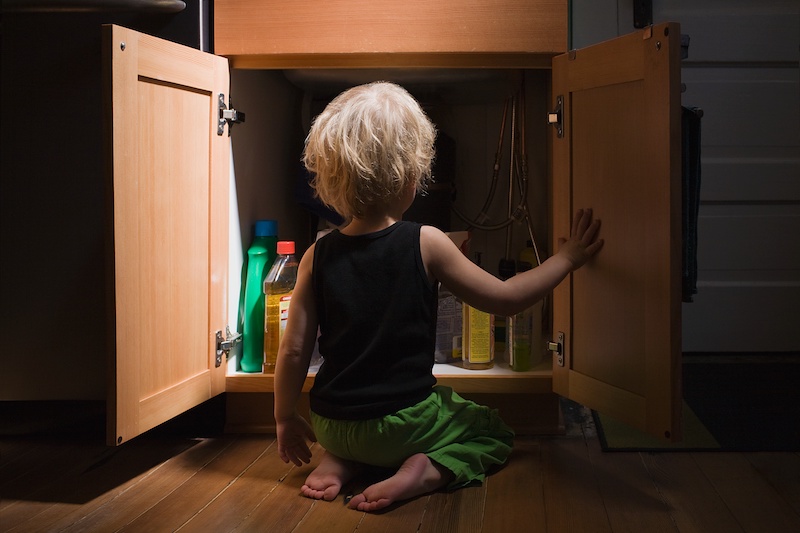
Photo courtesy of Getty Images
As manager of Texas Children’s Center for Childhood Injury Prevention, I look forward to National Poison Prevention Week. It’s a time when we come together to raise community awareness about the dangers of unintentional poisonings and encourage everyone’s participation in poison prevention efforts.
Approximately 40 children per year die from unintentional ingestion of poisonous substances in their homes. These include medications, household cleaning products and aerosol sprays, mouthwash, car supplies (antifreeze, windshield washer fluid) and gardening products (fertilizer, bug repellent). Every year, there are over 1 million calls to National Poison Control Centers. Many of these calls are made by concerned parents and caregivers whose children unintentionally ingested medication or cleaning products. Poisonings can happen at any age, which underscores the importance of poison prevention education and awareness. This week is a perfect reminder for parents to survey their home for potential hazards.
When storing medications, cleaning products or other potentially harmful substances in the home, it is important to secure cabinets with locks or childproof safety latches to prevent easy access for children.
Young children are naturally curious and many medications and household products may resemble candy or juice. Never refer to medication as candy, but, in fact, medicine. Both over-the-counter and prescription medications pose a risk to children of all ages. Multi-vitamins, Ibuprofen and diaper products pose the greatest risk for children under 4. While these may seem like harmless products we’ve all used before, these products contain ingredients that can be harmful when taken in excess. Teenagers are most at- risk for serious outcomes to medication poisoning. They are typically responsible for managing their own medication, but in some instances, they may make errors or purposely misuse medicine to self-harm. This is especially common with some prescription medications used to treat mental health conditions.
Medications and cleaning products should always be stored safely in locked cabinets and in original packaging. A common trend is for cleaning products, laundry pods and other household products to be transferred to decorative or more functional containers. If ingested, Poison Control Center or medical staff may need details found on original product labeling to administer care. Likewise, the Poison Control Center number, 1-800-222-1222 should be saved in parents’ phones and posted visibly in the home.
If you no longer need certain medications or they have expired, it is important to properly dispose of them. Do not flush medications down the toilet or drain unless the package instructions guide you to do so. Instead, mix unused medication with coffee grounds or kitty litter and throw it in the trash immediately.
Texas Children’s Home Safety Program
Texas Children’s is committed to children’s safety. Our injury prevention team offers a year-round Home Safety Program that focuses on preventing common injuries to children in their homes. The program highlights various safety topics including how to help families identify household hazards and how to childproof their homes. One of the best ways to discover potential dangers in your home is to get down to your child’s eye level. Our injury prevention team created this safety checklist for parents and caregivers. It’s an easy, room-by-room survey that will quickly point out possible dangers in your home.
In recognition of National Poison Prevention Week, I encourage everyone to take some time this week to check your storage of hazardous products in your home and correct any potential or hidden dangers.
Click here to view Texas Children’s home safety video for more helpful tips to keep in mind. For more information about Texas Children’s Center for Childhood Injury Prevention and our programs, click here.